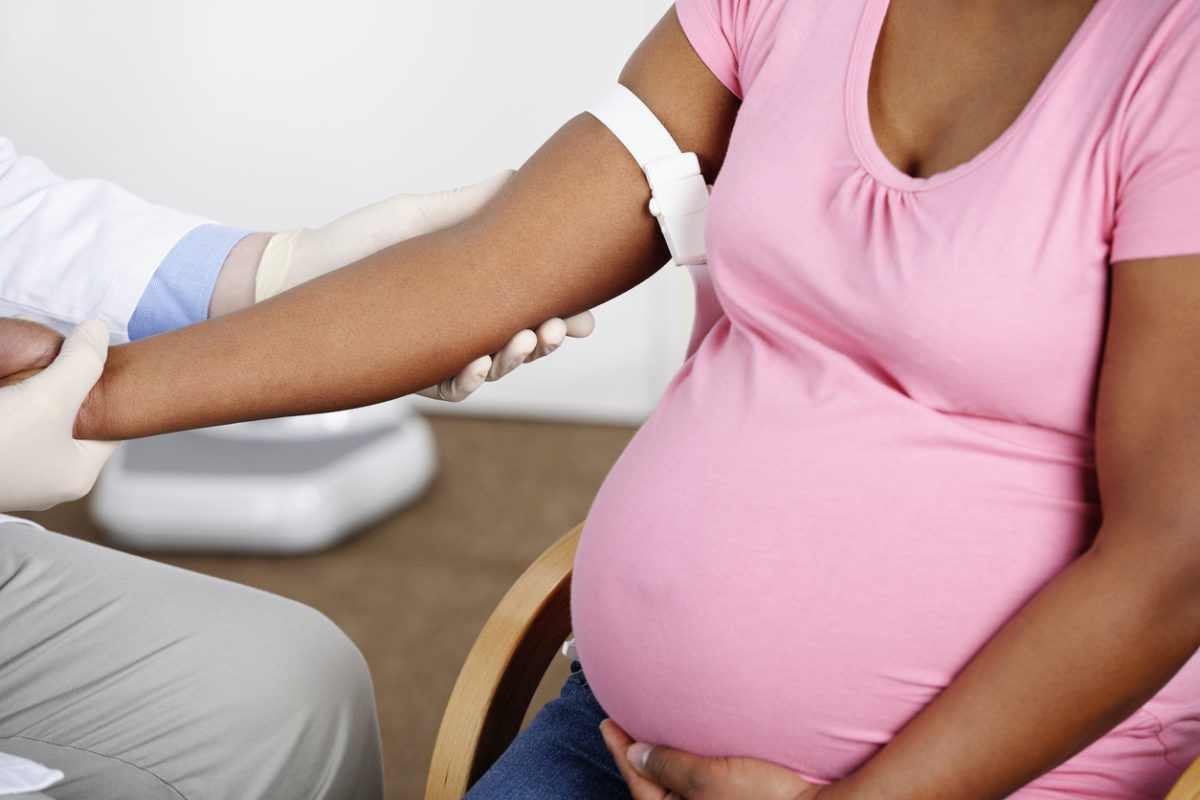In early pregnancy you will be offered a range of tests to assess your general health, either at the GP when your pregnancy is confirmed or during your 1st trimester. These tests include several blood tests and a urine test to check for anything that may cause a problem for pregnancy and birth. The blood tests will usually consist of five small vials of blood taken from your arm, along with a mid-stream urine specimen collected in a small sterile jar at your local pathology lab. We have outlined a summary of the recommended tests during early pregnancy.
.
Blood Group
There are four blood types (A, B, AB and O) and a blood test will confirm what type you are. It is important to know your blood group in case you need to be given blood. We also test if your blood group is positive or negative. This is your RhD factor, which indicates if you have D antigen on the surface of your red blood cells. Most people in Australia are positive (RhD positive), and approximately 17% are (RhD negative). There may be a need for treatment if you are RhD negative to safeguard your baby during pregnancy. See our newsletter on anti-d in pregnancy for extra information, Anti-D in Pregnancy.
Antibody Screen
The antibody screen is a blood check for unexpected antibodies, that may target and destroy the red blood cells of the developing baby during pregnancy. This is checked in early pregnancy and again at 26 – 28 weeks gestation.
Full Blood Count
A full blood count measures haemoglobin levels and white cell count to check for issues such as anaemia and iron deficiency. If anaemia is picked up, it is usually easy to treat with an iron rich diet and iron tablet supplementation. More details can be found in the Iron Newsletter on our blog.
Rubella Screen
Rubella is an infection also known as German Measles. If contracted during pregnancy, Rubella can cause serious problems such as blindness or deafness for an unborn baby, particularly in the early months of pregnancy. This blood test in early pregnancy will confirm whether you have immunity to Rubella which is reassuring. If you are non-immune to Rubella, it is important to avoid contact with anyone who is infected.
Varicella (Chickenpox) Screen
Varicella is a highly contagious infection caused by the varicella–zoster virus which is a member of the herpes group of viruses. Estimates of Varicella (chickenpox) range from 1 to 5 cases in every 10,000 pregnancies. There is a small chance that a baby can be affected by chickenpox if contracted whilst pregnant, which can cause congenital abnormalities. A blood test to confirm immunity to varicella is reassuring. If you are non-immune to varicella it is important to avoid contact with any person who is known to have the infection. Please see our blog on Chickenpox and Shingles for further reading.
Hepatitis B, C, HIV and Syphilis Screen
These are a group of blood transferred/sexually transmitted infections that can cause complications and concern for pregnancy. All women are screened during early pregnancy to rule out the presence of these infections. If you are found to be positive, early interventions and treatments are readily available.
Vitamin D Screen
Vitamin D regulates the level of calcium and phosphate in our body, which helps keep our bones and teeth healthy and helps fight infection. Increasing your daily sun exposure or taking a Vitamin D supplement will help maintain a healthy level of Vitamin D for both you and your baby. In early pregnancy Vitamin D will be checked to assess your level. For exta information on the importance of Vitamin D in Pregnancy, please see our blog.
Thyroid Function (TSH level)
Pregnancy can stress our thyroid gland, which helps regulate our hormones and metabolism. The thyroid stimulating hormone (TSH) is critical to normal development of your baby’s brain and nervous system. A blood test to assess your level of TSH in early pregnancy is important, as the baby is reliant on a mother’s supply of TSH particularly in the first 12 weeks of pregnancy. If your TSH is high, a medication taken orally will rectify this.
Thalassaemia Screen
Thalassaemia is an inherited blood disorder where mutated genes affect your body’s ability to make healthy haemoglobin (the iron rich protein found in red blood cells). This blood test in early pregnancy will find out if you carry the gene for thalassaemia.
Midstream Urine Collection (MSU)
A small sample of midstream urine will be collected along with these early pregnancy blood tests to assess for infection in the urine. An untreated urinary infection can be causative of early pregnancy loss.
Second Trimester Blood Tests 26 – 28 weeks
At approximately 26 – 28 weeks gestation you will be offered a Full Glucose Tolerance Test. This is a 2 hour fasting test that will assess if you have too much glucose (sugar) in your blood. If you have too much glucose in your blood it means you have gestational diabetes and your pregnancy needs to be monitored by way of diet, glucose monitoring and regular exercise to help reduce pregnancy complications for you and your baby. For additional information about Gestational Diabetes, please read our newsletter on the topic.
At the same time as your glucose tolerance test, you will also have another full blood count and iron study blood test. This will check your haemoglobin and iron stores, if either are low an iron supplement will be prescribed to you. Another antibody screen is also undertaken to check there are no unexpected antibodies which may affect your baby’s blood.
Third Trimester Blood Tests 36 weeks
This blood testing will only be taken if you had low iron during the second trimester and needed iron supplementation. A full blood count check and iron study would be taken to make sure that iron levels are adequate for labour and delivery following regular supplementation.
.
If you have any question about the different antenatal tests mentioned in this newsletter, please ask Dr Morris at your next visit.

